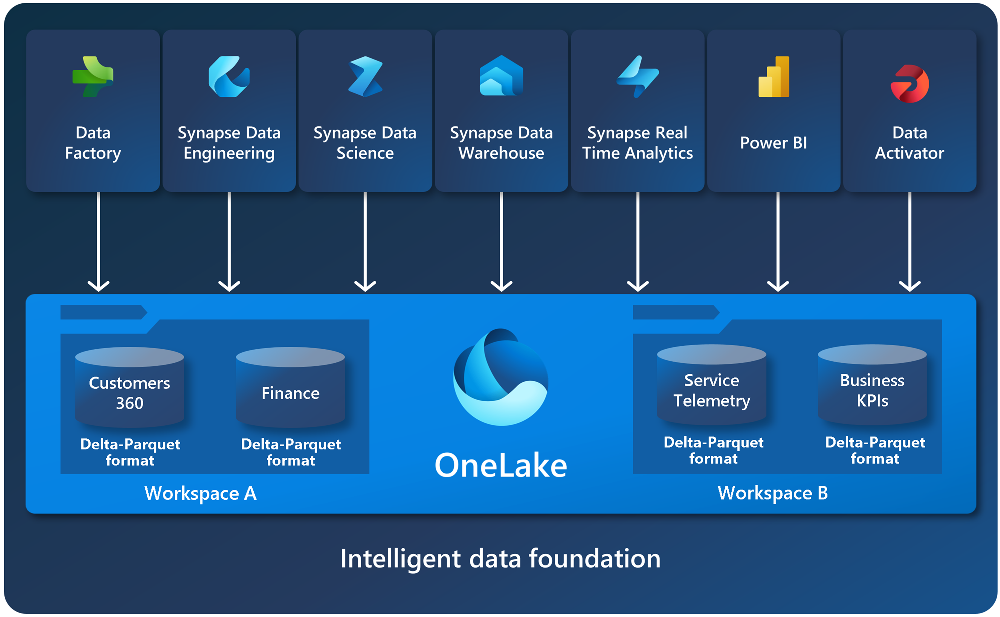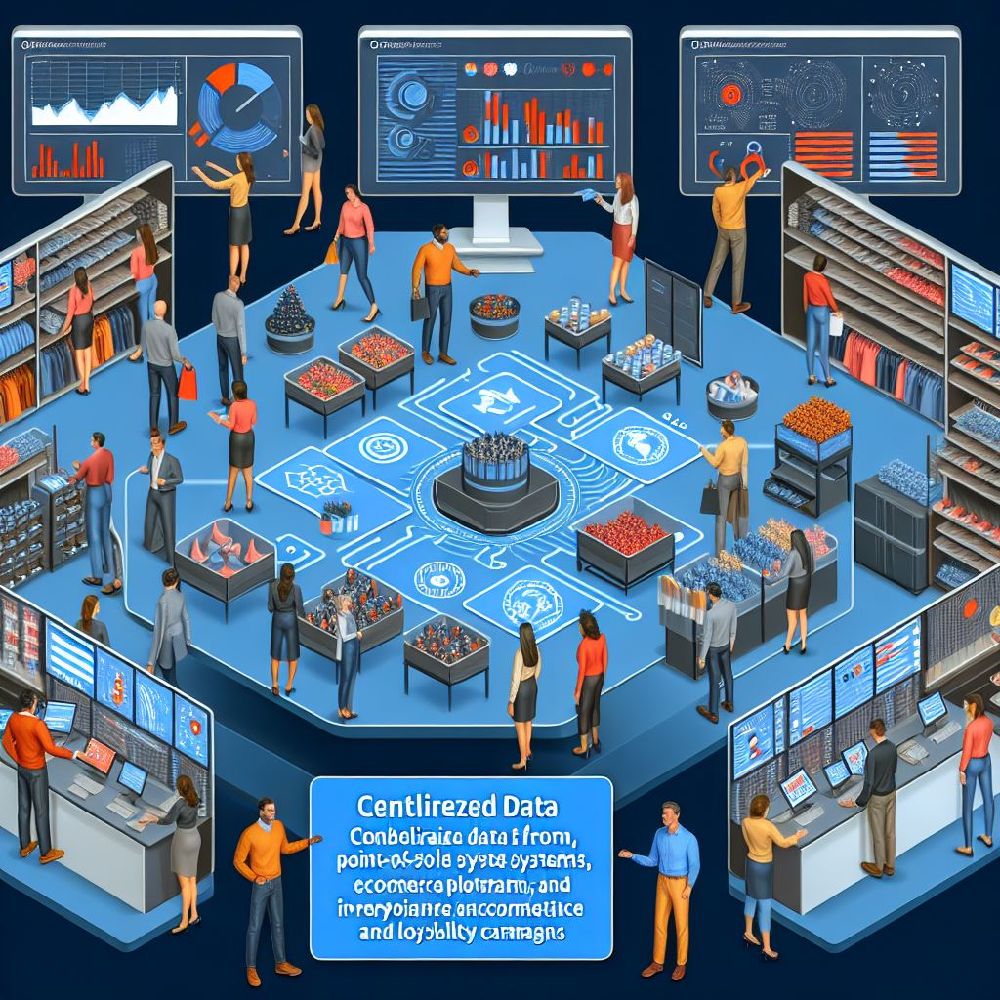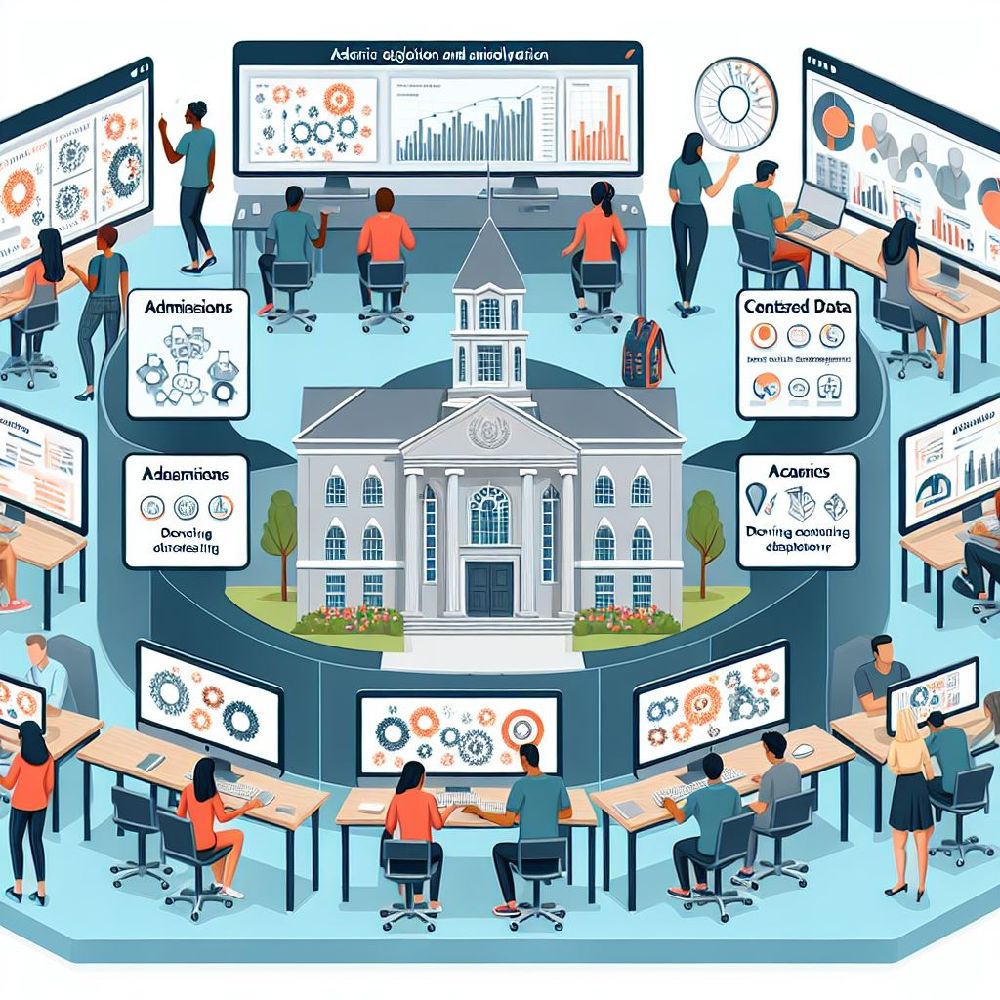Unlock the Potential of Microsoft OneLake in Fabric
In the era of digital transformation, efficient data management is paramount for organizations aiming to stay competitive. Microsoft OneLake in Fabric offers a groundbreaking solution that redefines how enterprises handle their data. Built on Azure Data Lake Gen 2, OneLake serves as a unified, logical data lake, centralizing all your analytics data.
Strategic Advantages of OneLake
OneLake is seamlessly integrated with every Microsoft Fabric tenant, ensuring immediate availability and effortless integration. It supports both structured and unstructured data, enabling the use of the same data across multiple analytical engines without the need for data movement or duplication. This capability is crucial for organizations seeking to optimize their data management strategies.
Key Benefits of OneLake
Enterprise-wide Data Lake: Traditionally, organizations created multiple data lakes for different business units. OneLake consolidates this approach, providing a single, collaborative data lake for the entire enterprise. This unified strategy enhances data governance and minimizes redundancy.
Distributed Ownership and Collaboration: OneLake allows the creation of workspaces within a tenant, enabling various departments to manage their data assets. This distributed ownership model fosters collaboration while maintaining strict governance boundaries, ensuring data accessibility and security.
Open and Compatible: Leveraging Azure Data Lake Storage (ADLS) Gen2, OneLake stores data in Delta Parquet format. It supports existing ADLS Gen2 APIs and SDKs, ensuring compatibility with current applications. This allows organizations to integrate OneLake seamlessly into their existing data ecosystems.
User-friendly Navigation: OneLake's file explorer simplifies data navigation, allowing users to access and manage data from Windows as easily as working with local files.

Industry Applications of OneLake
1. Healthcare
In the healthcare sector, managing and analyzing vast amounts of data is critical for enhancing patient outcomes and operational efficiency. OneLake provides a unified platform to store and analyze diverse data types, such as clinical records, imaging data, and genomics.

Example: A hospital network can leverage OneLake to integrate patient data from various departments, including radiology, cardiology, and oncology. Centralizing this data enables healthcare providers to gain a comprehensive view of patient health, facilitating better diagnostics and personalized treatment plans. OneLake's compatibility with existing healthcare applications ensures seamless data integration and analysis, driving valuable insights and improving patient care.
2. Property Management
Property management involves handling extensive data, from tenant information to maintenance records and financial transactions. OneLake streamlines data management by providing a single repository for all property-related data, enhancing accessibility and analysis.

Example: A property management company can use OneLake to consolidate data from multiple properties, including lease agreements, maintenance schedules, and tenant communications. This centralized approach allows property managers to efficiently track and manage assets, identify trends, and make data-driven decisions. For instance, analyzing maintenance data can help the company proactively address common issues, reducing downtime and improving tenant satisfaction.
3. Finance
In the finance industry, data accuracy and real-time analytics are crucial for decision-making and regulatory compliance. OneLake offers a robust platform for managing financial data, ensuring consistency and accessibility.

Example: A financial institution can use OneLake to integrate data from various sources, such as transaction records, customer profiles, and market data. By centralizing this information, the institution can perform real-time risk assessments, detect fraudulent activities, and generate comprehensive financial reports. OneLake's compatibility with existing financial applications ensures seamless data integration and analysis, enhancing operational efficiency and regulatory compliance.
4. Retail
Retailers deal with vast amounts of data from various sources, including sales transactions, customer interactions, and inventory management. OneLake provides a unified platform to store and analyze this data, driving better business insights and customer experiences.

Example: A retail chain can use OneLake to consolidate data from point-of-sale systems, eCommerce platforms, and customer loyalty programs. By centralizing this data, the retailer can gain insights into customer behavior, optimize inventory levels, and personalize marketing campaigns. OneLake's compatibility with existing retail applications ensures seamless data integration and analysis, enhancing operational efficiency and customer satisfaction.
5. Manufacturing
Manufacturing companies rely on data to optimize production processes, manage supply chains, and ensure product quality. OneLake offers a comprehensive solution for managing manufacturing data, enabling better decision-making and operational efficiency.

Example: A manufacturing company can use OneLake to integrate data from various sources, such as production line sensors, supply chain management systems, and quality control records. By centralizing this data, the company can monitor production performance, identify bottlenecks, and implement predictive maintenance strategies. OneLake's compatibility with existing manufacturing applications ensures seamless data integration and analysis, driving operational efficiency and product quality.
6. Education
Educational institutions manage a diverse range of data, from student records to research data and administrative information. OneLake provides a unified platform to store and analyze this data, enhancing educational outcomes and operational efficiency.

Example: A university can use OneLake to consolidate data from various departments, including admissions, academics, and research. By centralizing this data, the institution can gain insights into student performance, optimize resource allocation, and support data-driven decision-making. OneLake's compatibility with existing educational applications ensures seamless data integration and analysis, driving academic excellence and operational efficiency.
7. Energy
The energy sector generates vast amounts of data from various sources, including sensors, meters, and operational systems. OneLake offers a robust platform for managing this data, enabling better decision-making and operational efficiency.

Example: An energy company can use OneLake to integrate data from various sources, such as smart meters, grid sensors, and operational systems. By centralizing this data, the company can monitor energy consumption, optimize grid performance, and implement predictive maintenance strategies. OneLake's compatibility with existing energy applications ensures seamless data integration and analysis, driving operational efficiency and sustainability.
Why OneLake is Essential for Your Organization
OneLake is not just a data lake; it is a comprehensive solution that simplifies data management and enhances collaboration across your enterprise. By centralizing your data in OneLake, you ensure consistency, improve data governance, and reduce the complexity of managing multiple data sources.
In essence, OneLake is the OneDrive for data, offering a seamless, integrated experience that empowers your organization to make informed, data-driven decisions with confidence.
Let's explore the transformative potential of Microsoft OneLake in Fabric and revolutionize your data management strategy today by contacting us today.
